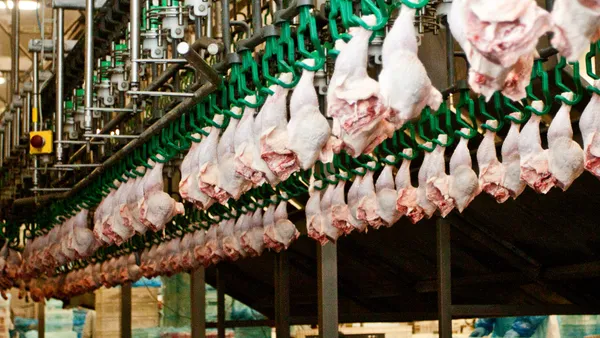Dive Brief:
-
Senate leaders committed to securing additional funding for the farm bill, Agriculture Committee Chairwoman Debbie Stabenow said Wednesday, as she notes an extension of current legislation will likely become necessary.
-
Majority Leader Chuck Schumer pledged to find "several billion dollars in additional resources through bipartisan offsets outside the farm bill," Stabenow said during a speech on the Senate floor. "It’s almost unheard of to get a commitment to add new money to the farm bill."
-
Stabenow added that chaos in the House will likely push farm bill consideration into 2024. "Unfortunately, it looks like this will take longer than I would like," she said.
Dive Insight:
With the House able to conduct legislative business again following the election of a new speaker, lawmakers need to scramble to approve a government spending package before a potential shutdown occurs Nov. 17. That leaves little room for the farm bill, which oversees hundreds of billions of dollars in crucial support programs for the agriculture industry.
Although the farm bill expired Sept. 30, farmers aren't expected to see impacts until the start of next year, when certain programs begin to revert back to outdated laws enacted in 1938 and 1949.
"It would be irresponsible to allow vital programs in the farm safety net to lapse and revert to Depression Era policy in January," Stabenow said on the Senate floor. "We cannot allow that to happen, and given the chaos in the House, I know we will need an extension."
The House has just 12 legislative days scheduled after Nov. 17 to reach an agreement to extend the farm bill, which leaders say is necessary to prevent industry disruption. Additionally, lawmakers still need to pass an appropriations bill for the U.S. Department of Agriculture, a process mired by far-right demands for funding cuts and other proposals that are non-starters for Democrats.
The Senate chairwoman outlined some initiatives she's focused on for the upcoming farm bill, including "targeted support for beginning and organic farmers, BIPOC farmers and urban growers." She also noted a $2.3 billion investment in trade promotion and international food aid from the USDA that will allow lawmakers to grow the permanent baseline for those programs in subsequent farm bills.
Stabenow said she remains "laser-focused" on delivering a bipartisan farm bill in the coming months, saying the package is an important safety net for farmers and low-income families. She also resisted calls to cut climate funding or pare down the Supplemental Nutrition Assistance Program, formerly known as food stamps.
"When crops fail or when disaster strikes, the farm safety net steps in to provide stability and security," she said. "When a pandemic hits, or the economy takes a turn for the worse, it is the family safety net that steps in. The farm bill is designed to – and it must – support both."











